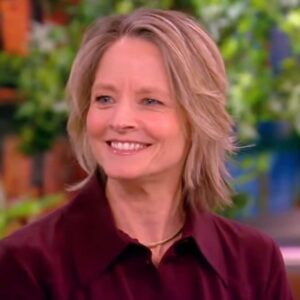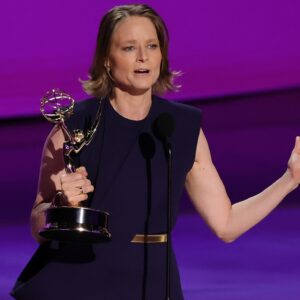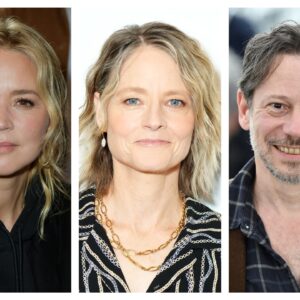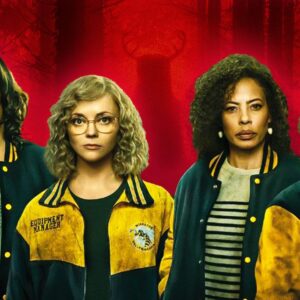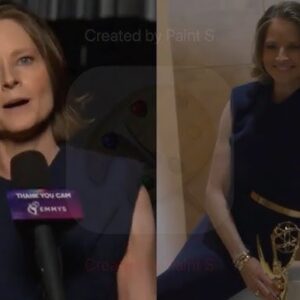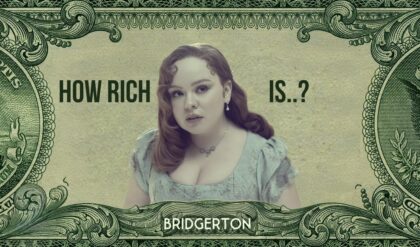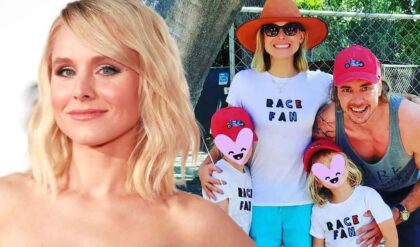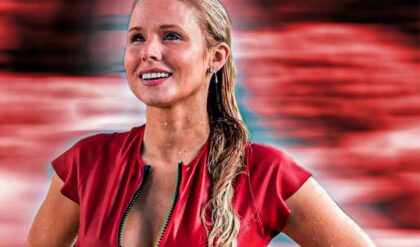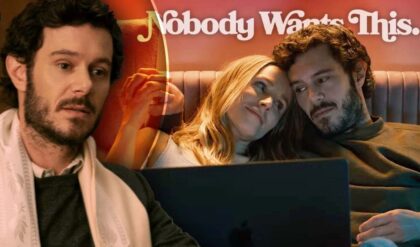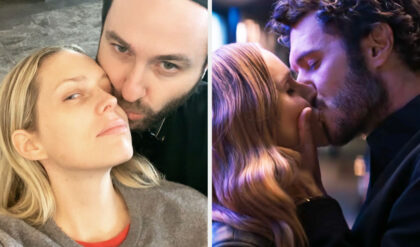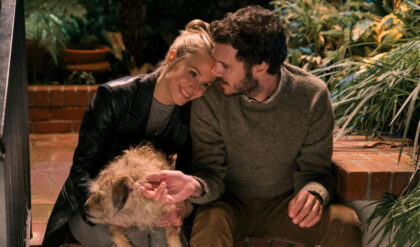In Conversation With Will Schwalbe On But That’s Another Story.
Will Schwalbe: Hi. I’m Will Schwalbe, and you’re listening to But That’s Another Story. There are so many reasons to read, but two of my favorites seem to contradict each other. On the one hand, I read to explore new worlds—to see and feel things I might miss out on if not for books. I didn’t grow up in 19th-century Nantucket or Meiji Restoration Japan, but books can take me to these and other places it’s impossible for me to visit. On the other hand, books allow me to read about places I know, and meet people with whom I already have much in common.

For example, I’ve found that works that feature teens growing up in the 1970s often strike a particular chord, whether it’s Rick Moody’s The Ice Storm or Meg Wolitzer’s The Interestings. It’s not just comforting to see characters whose experiences reflect and refract my own—it helps me understand who I am, and how I got to be this way. I mentioned that these types of reading seem to contradict each other. But as any reader knows, that’s not really true. When there are vivid characters, you can find yourself in any book. No matter the author, age, or era, any book can help you not just feel less alone, but can point you towards your people. And recently, I got to talking about how great it is to find your tribe—and never knowing where you’re going to find it—with today’s guest.
Jodie Foster: Alright, I’m Jodie Foster. I’m an actress, director, producer, and I’m going to be talking about Franny and Zooey, my favorite book of all time.
WS: Jodie Foster needs little introduction, but I’ll give one a try. She’s had a storied career, all the way back to her first modeling gig at age three, which was also the age she learned to read. Jodie was a child actress, starring in films like Freaky Friday and Taxi Driver, and she’s won not one but two Academy Awards for Best Actress. I met Jodie when we were both freshmen at Yale. Jodie was a big reader then and still is. Her lifelong love for books began, a bit improbably, back in California in the 1970s.
JF: I grew up in Los Angeles and I’m the last of four children. My mom raised us all pretty much on her own, me completely on her own, so she was a single mom. And there wasn’t anything that I was kept from. So, we lived really close to Hollywood Boulevard… we were always pointing out prostitutes. It was the 70s. I was really in the midst of a real urban environment. So, even though I went to a private school with a little Peter Pan collar, I had the duality of a world of the mind, but also kind of this street smart kid, being raised by a single mom, who was a survivor. It was a lot of like, how are we not going to get our car repossessed? There was a lot of that.
I really was a good kid. I didn’t do bad things. I had these older brothers and sisters that were busy getting in trouble, and my mom was always stamping her feet talking about those damn kids. And she was always sort of threatening them like, if you ever get arrested, I’m never speaking to you again! Or, if I ever find you on Hollywood Boulevard, don’t ever come home! So, I kind of got the message that I shouldn’t be bad, and I just lived a very internal life.
WS: An internal life that was enhanced by reading—a hobby Jodie first cultivated during the time she spent running errands with her mom.
JF: She spent a lot of time shopping, and that meant that I spent a lot of time bringing my book with me in the car because I wasn’t allowed to complain. She would just find a good seat for me, and I would just pull out my book, and I would read a lot. So, those are kind of my memories growing up.
WS: Books were not something shared between mother and daughter.
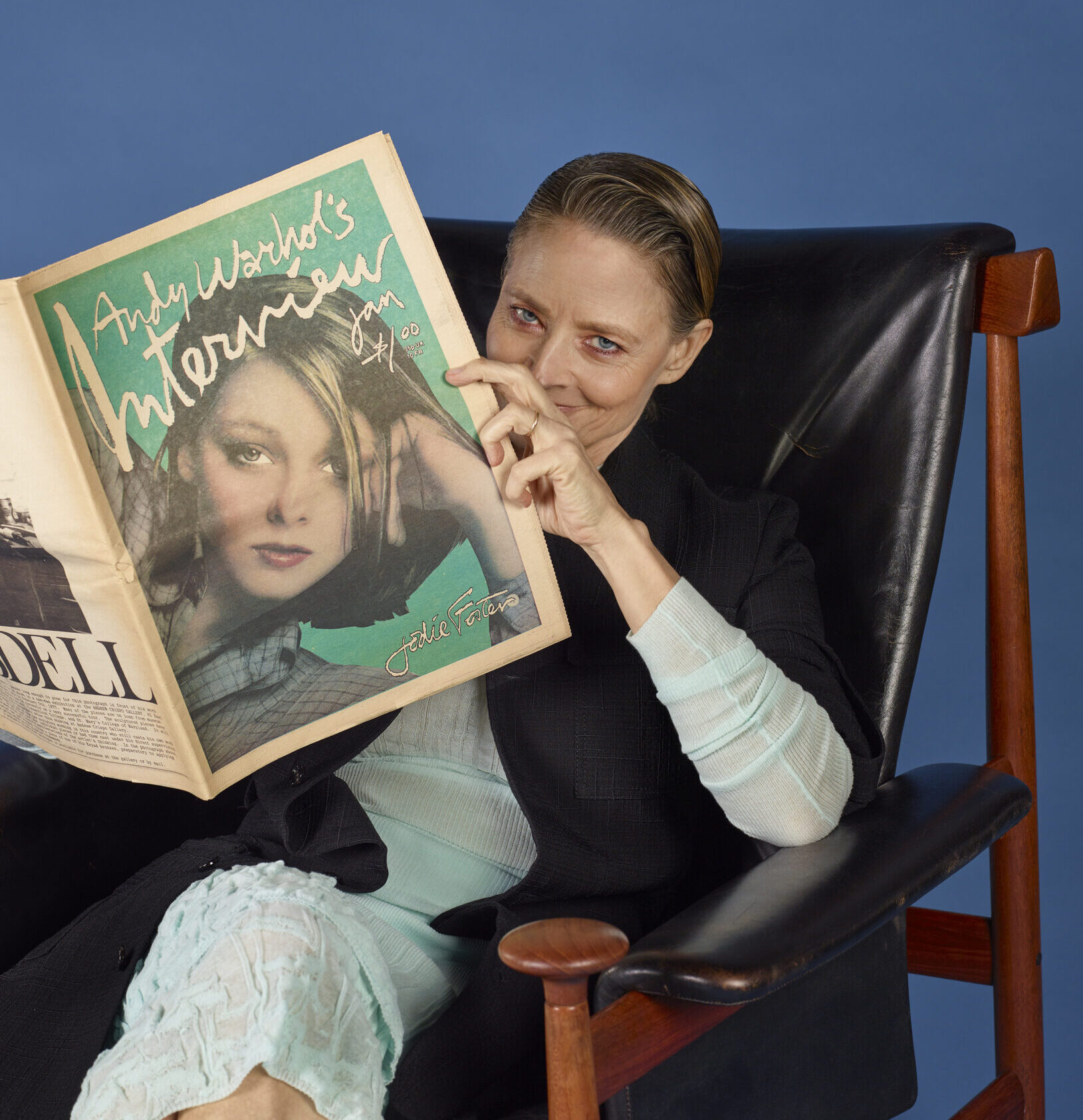
JF: I think we were always having cross vocabulary, and I was annoying because I talked in analogies, and she always just thought I was a blowhard. I think that she respected me and she was proud of me, but she was okay feeling like I did my thing, and she did hers. But you know, we liked the same movies. And that’s the place that we connected was movies. The combination of the head and the heart, the combination of language and literature and the physical, spiritual other thing—that was the subset place we came together.
WS: But as her mom became her manager and movies became the family business, it was clear that words specifically had a special role in helping Jodie connect as an actress.
JF: If you went into the children’s section, there was this series of histories, and there would be maybe Amelia Earhart, or it would be Marie Curie, or Albert Einstein—just different histories of important people. And I would just plow through those. I went through every single one of those. Every kind of famous person and all the crazy things that they did.
Whenever I was trying to escape something, something that was uncomfortable, or that was difficult for me, or that seemed too chaotic, my first refuge was just reading.
There was a book on JFK. I got this book and I took it into the bathroom and I memorized every word of it so that I could do a monologue of it in the mirror to myself, from beginning to end. And it was like a mantra. I would keep like rehearsing and rehearsing this book, and I think it was so I could have a feeling, like, I can still remember it, and I could find emotion by words. I couldn’t find emotions other ways that actors could. You know, other actors could stand in front of a bunch of dirt and somebody would say, that’s your grandma’s grave, and then they would just feel emotional and cry, and that just wasn’t my way. So, I had to find poetry and recite it in my head. I had to find things that were words, particular words that were moving to me, and if the words that I spoke on screen weren’t moving to me I had to come up with words that were.
WS: Jodie’s hard work paid off, and she excelled as an actress. And soon, movie sets began to feel familiar—a home away from home.
JF: Definitely being on sets, that was really my first big family. When you’re on a movie, or you’re on a TV show, and you’re on a TV show for maybe seven or eight months, and there’s all these grown ups. And in my case, there were all these guys because, don’t forget, there were no women in the movie business when I was growing up. Occasionally, there was a script supervisor, or somebody doing my makeup, but almost always, they were men. And I didn’t have a dad, so it was this whole bunch of guys who taught me how to do things like whittle wood, and they would teach me about lenses, and about focal lengths, and about how to load magazines, or they would reprimand me appropriately if I was bratty. They would say, sit down in your seat, or stop fidgeting, or they would say, you have to write thank you notes, or you must hang up your clothes in your trailer every night. There were all these rules that felt like they came from love, and to me, when I was younger, it was so hard every time a movie was over or every time my show got canceled. It was just heartbreaking every single time.
WS: But books offered a respite from that uncertainty
JF: Whenever I was trying to escape something, something that was uncomfortable, or that was difficult for me, or that seemed too chaotic, my first refuge was just reading.
WS: And how did you come across Franny and Zooey?
JF: I wish I could tell you that I remember. I feel like it was in a bookstore. I feel like it was just the regular old, here’s a bookstore and here’s a book.
WS: Yet it turned out to be far more than just the regular old, here’s a book for Jodie. The connection she felt to the novella was immediate.
JF: I just, you know, that was it. That was my story.
WS: Written by J.D. Salinger and published in 1961, Franny and Zooey tells the story of the Glass family. The stories touch on the lives of the Glass siblings, who grew up performing on a children’s radio quiz show. In the years since their heyday, each painfully grapples with an existential yearning for answers about love, about God, and about his or her own future.
JF: There’s the obvious parallels. I was… you know, somewhat famous. I did lots of press tours and had to get my picture taken. And I was keenly aware that I had this responsibility to perform for people, and that I belonged to them in a way. And I think I was already feeling the weight of that as a young person. But I also think it was this spiritual longing. Like there’s got to be something else, there’s got to be something more.
WS: For Jodie, the passage of time has made it clear what that something more was.
JF: Now that I’ve gone back and read it a million times, I realize that a lot of it was a fantasy of, here was a family of people that all spoke the same language. And each one of them were suffering, but somehow, they were going to take care of one another because they each understood each other’s suffering. And so, it was the companionship of this family, this family of misfits, that could kind of come together. And that was the part that I wanted. I felt like with Franny and Zooey, I had this longing to have this family of other people who were asking themselves the big meaningful questions and who felt so much. And I didn’t have that family. I had a family who were really visual, and they were awesome people, but we just didn’t speak the same language.
WS: When Jodie Foster read Franny and Zooey as an adolescent, it sparked feelings of longing—for answers to spiritual questions that plagued her, and for a family like the one she found in the pages of J.D. Salinger’s book.
JF: I definitely didn’t have a family like the Glass family. My three brothers and sisters, they’re all a year apart, and they were all raised together, so they did a lot of poking each other in the eye and yelling at each other, and doing mean things to each other. They actually had a real brother and sister relationship, but I was the baby, and I just didn’t have that relationship with them. They were all out of the house by the time I was ten. And I was left to take care of my mom. So, that was my job. My job was to take care of her, and their job was to rebel against her. So, that was, I think, very different than the Glass family. And maybe there was a longing for that. Maybe there was a longing for having this family. Perhaps in my life, it wasn’t so much for an actual family but for a family of friends.
I’ve always known that I wanted to direct. I didn’t know that it would be possible, and even more importantly, I didn’t know whether I had the tenacity of spirit to be able to commit to something.
WS: And soon, Jodie found just that. She put her acting career on hold and enrolled in Yale, which is where we met, in an intro to Italian class. I remember lots of time chatting with Jodie and almost no Italian. All through her college career, Jodie found herself reengaging with her first love—words—as she pursued a literature major.
JF: The literature major was not English. The literature major was sort of the study of literature. So, it was kind of semiology, and philosophy of language, and books on books is pretty much what it’s about. And my area of concentration eventually was African American studies and African studies—African oral narrative in particular. And I was just so moved and changed by that experience. It was something that I’d never really known anything about, and eventually I found my way to Toni Morrison, and I did my senior essay on Song of Solomon.
WS: As Jodie reconnected with her love of literature, she also found herself building the kind of community that she had so craved after first reading Franny and Zooey.
JF: It’s a big theme in my life, this looking for family. And it probably comes from this solitary quality that I’ve had that in some ways, is totally self imposed. I fancy myself a solitary person, it’s a romantic thing that I have about, I do my work alone and I don’t ask for help from anybody. But I think I was looking for families and I found them. I found them in the movie business. I found them in college, certainly. And I think people that feel like I felt when I was young recognize that their families—their actual blood families—can’t necessarily provide the kind of intimacy and connecting, and see that their chosen families can.
WS: At Yale, Jodie began to create that chosen family for herself.
JF: I just feel it is a privileged place. And it’s not a privilege because there’s gold toilet seats. It’s a privilege because there’s just all of these passionate, excited, interesting people that are bubbling over with thoughts and you do feel the electricity. Even when I go back there now—I go back to see my son—it’s just such a privilege to be in the midst of all that. I really think Yale was sort of the depository for everything that I was looking for in the Glass family. It was something I had never imagined existed, really. So for me, it was like my head exploded when I went to Yale.
WS: After graduation, Jodie went back to work as an actress, winning countless awards and acclaim for her performances in movies like The Accused and Silence of the Lambs. But as she considered stepping behind the camera for her next project, the Glass family once again returned to Jodie’s thoughts.
JF: I knew I wanted to direct. I’ve always known that I wanted to direct. I didn’t know that it would be possible, and even more importantly, I didn’t know whether I had the tenacity of spirit to be able to commit to something. I thought, I’m young. I’m 24, what am I ever going to commit to that I would be able to do for a year, or two years? And a script came my way called Little Man Tate, which is the first movie that I directed. And I read it in one sitting and was sort of breathless and sweaty and said, this is it, this is the movie that I have to direct, and I know that I can direct this movie, I can commit to this movie for the rest of my life. And interestingly, it really is a take on Franny and Zooey.
WS: The movie tells the story of a boy genius raised by a single mom who catches the attention of a psychologist and former child prodigy who believes she can help him reach his full potential. Ultimately, it becomes clear that he really needs them both.
JF: I read something that really blew my mind, that when we think of prodigies, we think of people who are a herald of a new age. So, they really don’t live in this age, they live in the next age. And by virtue of that placement in our culture, they will always be alone. And that felt a little bit about the suffering in Franny and Zooey. This kind of like spiritual quest for meaning, that maybe that’s what 15 year olds feel like—when you suddenly wake up and want to talk about God. Maybe this is just a quintessential 15 year old thing, but it hasn’t really left me. I feel like every movie I make is about a spiritual crisis or about people in spiritual crisis because it’s really only through those particular crises that they’re able to evolve and change to be able to become better instead of worse.
WS: Do you think being such a reader has influenced the way you approach parts as an actress and the way you approach projects as a director?
JF: Definitely my first love is books and words. And honestly, I started acting when I was three years old. I don’t know if I would have become an actor later in life. I kind of doubt it. I don’t really have the personality. I’m not that kind of person who wants to dance on a table for people, who wants to do impressions or put a lampshade on my head—it’s not my personality. Eventually, as I got older, I realized what a gift it was really, that I could have a job that was so physical and emotional. But I could apply this intellectual, verbal sensitivity to it. And maybe that’s what made my work different—I didn’t approach acting the way somebody approaches acting when they choose to become an actor at 25. I approached it the way I approached literature. So, I was always working between the head and the heart, always that strange balance between those two. But my first love is words and structure, so I always come at it that way. I don’t know if that’s made my work better.
WS: Who would you give Franny and Zooey to?
JF: That’s a really good question. Well, as I was skimming through it today, I realized that I’ve never given it to my sons to read. And I really want to give this to my older son, because he’s at college, and he’s asking all those questions I asked. Like, I had a lot of anxiety, because you just don’t know. Even if you’re the smartest 22-year-old in the world, there’s no way that you could have the ability to look into the future and know that you’re going to be okay. And I guess that’s really the suffering of Franny in the book, is that with all of the wisdom that she’s seen and with the world that she’s come to know, she’s scared that at the end of that rainbow, there’s nothing. And I think that’s normal, certainly, at 20 years old, to be worried about that. But I feel like if you just take the path, meaning you just take one foot in front of the other, that meaning appears, without trying to conjure it.
But That’s Another Story is produced by Katie Ferguson, with editing help from Alyssa Martino and Becky Celestina. Thanks to Jodie Foster and Emily Miller. If you’d like to learn more about the books we’ve mentioned in this week’s episode, you can find out more in our show notes. If you’ve been enjoying the show, please be sure to rate and review on iTunes—it really helps others discover the program. And subscribe for free on Apple Podcasts, Stitcher, or wherever you listen. If there’s a book that changed your life, we want to hear about it. Send us an email at [email protected]. We’ll be back with our next episode in two weeks.
News
How did Jodie Foster typecast herself by being so good at her job?
Jodie Foster has portrayed a wide range of characters on screen. She captured hearts as the precocious teen in Freaky Friday and stunned audiences with her role in Taxi Driver. In The Silence of the Lambs and Panic Room, she demonstrated a steely resolve paired with human…
Jodie Foster sets her next film, and more casting news this week
Jodie Foster is going from Night Country to wine country. According to Variety, the Academy Award-winning actress has set her first project since starring in True Detective‘s fourth season earlier this year. She’ll lead the film Vie Privée, an upcoming French language project from director Rebecca…
Justin Bieber has ‘alienated’ people around him amid ex-mentor Sean Diddy’s arrest: ‘His family members are…’
Justin Bieber has “alienated” people around him as he “doesn’t trust them”, said an insider, claiming that the singer has done “some really crazy s-t.” While Justin Bieber has strongly rejected any connection with the allegations against Sean Diddy Combs, the American…
Oscar-Winner Jodie Foster Cast in Rebecca Zlotowski’s Latest French Film
Jodie Foster Cast in New French Film Academy Award-winning actress, Jodie Foster, has come on board the latest film from director Rebecca Zlotowski, Vie Privée. Jodie Foster, who is fluent in French, will be starring in the upcoming international film, Vie Privée. This film…
‘Yellowjackets’ Season 3: Everything To Know So Far About The Doomed Team’s Return To The Wilderness
Yellowjackets has been streaming on Paramount+ for years, but the survival/coming-of-age series recently received the famed Netflix boost. The series’ second season did lose some momentum while it aired, and that season isn’t on Netflix as of yet (and hopefully, you aren’t reading…
Jodie Foster Reacts To First Emmy Win
Jodie Foster, one of the most celebrated actresses of our time, has made headlines with her recent Emmy win, marking a remarkable comeback year in her illustrious career. After being nominated for an Academy Award for the first time in…
End of content
No more pages to load
